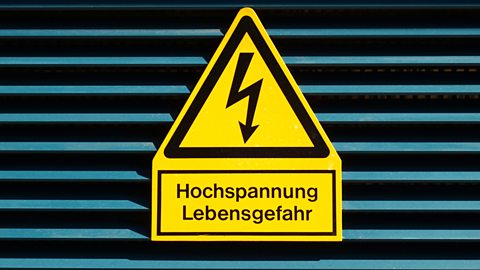How to use subordinating conjunctions
- join the sentences with the conjunction
- send the verb to the end
Example:
als
- Ich war im Schloss. Ich habe Peter gesehen. ÔÇô I was in the castle. I saw Peter.
- Ich war im Schloss, als ich Peter gesehen habe. ÔÇô I was in the castle when I saw Peter.
Note that als has sent the auxiliary verb habe to the end?
You are really saying 'I was in the castle when I Peter saw' (even more literally: 'I was in the castle when I Peter seen have')
Here are some other examples:
als ob
- Er spielt. Er ist ein alter Mann. ÔÇô He plays. He is an old man.
- Er spielt, als ob er ein alter Mann ist. ÔÇô He plays as if he is an old man. (literally: He plays as if he an old man is).
bevor
- Ich mache meine Hausaufgaben. Ich spiele am Computer. ÔÇô I do my homework. I play on the computer.
- Ich mache meine Hausaufgaben bevor ich am Computer spiele. ÔÇô I do my homework before I play on the computer. (literally: I do my homework before I on the computer play).
bis
- Wir warten. Du bist fertig. ÔÇô We wait. You are ready.
- Wir warten, bis du fertig bist. ÔÇô We wait until you are ready. (literally: We wait until you ready are).
da
- Wir gehen nicht zum Park. Es regnet in Str├Âmen. ÔÇô We are not going to the park. It is pouring.
- Wir gehen nicht zum Park, da es in Str├Âmen regnet. ÔÇô We are not going to the park, as it is pouring. (literally: We are not going to the park, as it in streams rains).
damit
- Ich treibe viel Sport. Ich kann abnehmen. ÔÇô I do a lot of sport. I can lose weight.
- Ich treibe viel Sport, damit ich abnehmen kann. ÔÇô I do a lot of sport, so that I can lose weight. (I do a lot of sport, so that I weight lose can).
dass
- Ich denke. Ich kenne den Mann. ÔÇô I think. I know the man.
- Ich denke, dass ich den Mann kenne. ÔÇô I think that I know the man.
Now practise joining sentences using other subordinating conjunctions.
Question
Link the two sentences with the conjunction. Then write what the new sentence means in English.
- [nachdem] ÔÇô Wir gehen oft spazieren. Wir haben gegessen.
- [ob] ÔÇô Ich wei├ƒ nicht. Ich habe genug Zeit.
- [obwohl] ÔÇô Ich m├Âchte Ski fahren. Es gibt nicht viel Schnee.
- [seitdem] ÔÇô Ich fahre oft Auto. Ich habe den F├╝hrerschein gemacht.
- [so dass] ÔÇô Sie trainiert viel. Sie kann gewinnen.
- [w├ñhrend] ÔÇô Sie wollen das Schloss besichtigen. Sie sind in Schwerin.
- [weil] ÔÇô Ich will nicht ins Kino gehen. Ich habe den Film schon gesehen.
- [wenn] ÔÇô Ich m├Âchte viel reisen. Ich bin ├ñlter.
- Wir gehen oft spazieren, nachdem wir gegessen haben. ÔÇô We often go for a walk after we have eaten.
- Ich wei├ƒ nicht, ob ich genug Zeit habe. ÔÇô I don't know if I have enough time.
- Ich m├Âchte Ski fahren, obwohl es nicht viel Schnee gibt. ÔÇô I would like to go skiing, although there is not much snow.
- Ich fahre oft Auto, seitdem ich den F├╝hrerschein gemacht habe. ÔÇô I often drive the car since I got my driving licence.
- Sie trainiert viel, so dass sie gewinnen kann. ÔÇô She trains a lot so that she can win.
- Sie wollen das Schloss besichtigen, w├ñhrend sie in Schwerin sind. ÔÇô They want to visit the castle while they are in Schwerin.
- Ich will nicht ins Kino gehen, weil ich den Film schon gesehen habe. ÔÇô I don't want to go to the cinema, because I have already seen the film.
- Ich m├Âchte viel reisen, wenn ich ├ñlter bin. ÔÇô I would like to travel a lot when I am older.
Did you know?
Der Strom (plural die Str├Âme) means river or current. Es regnet in Str├Âmen is the idiomatic way to say 'it is pouring' ÔÇô literally it means it is raining in streams/currents.
But beware if you see a sign warning you of Strom ÔÇô it is warning you of an electrical current, not a current in water.

The word 'Strom' has more than one meaning in German